A recent wave of fictional headlines and satirical stories imagines a very different kind of presidency—one where romance and personal lives are handled with more mystery, and a little less public judgment.
It’s a playful take, but it raises a bigger question: How would America look if it adopted a more relaxed attitude—like France—when it comes to the private lives of public leaders?
The (Imaginary) Scandal That Sparked the Idea
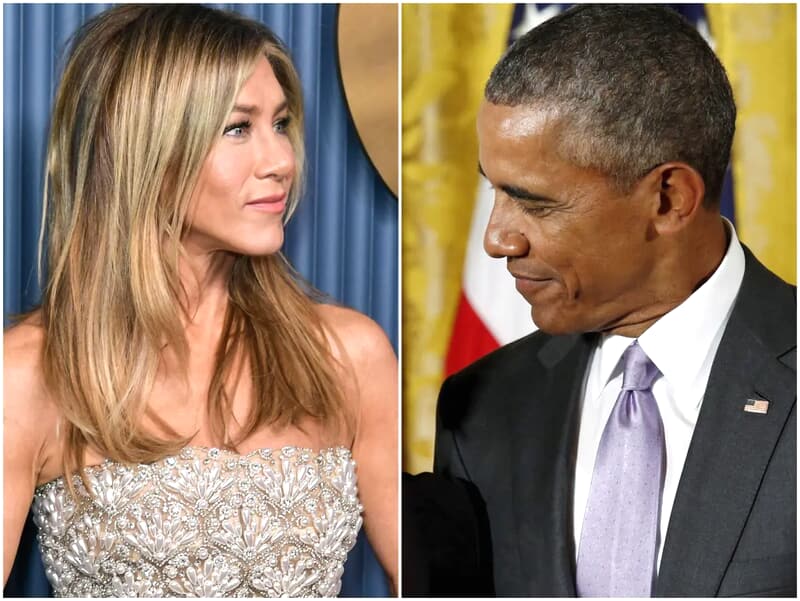
In one fictional account, President Obama is said to have visited Jennifer Aniston’s apartment quietly, leaving the next morning on a scooter, wearing a helmet to hide his face. In this alternate world, even though the press knows what’s going on, few seem to care—and most Americans agree: the president’s private life is just that—private.
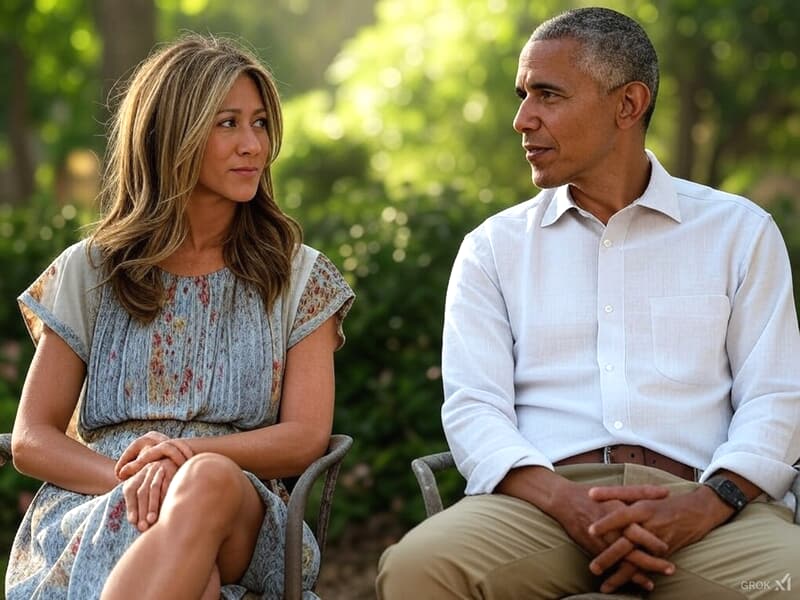
The imagined drama includes past relationships with Hillary Clinton and Katie Couric, but in this story, reporters quickly move on to serious topics like the federal budget once Obama reminds them that his personal life isn’t up for discussion.
How France Treats Scandal Differently

In France, it’s common for leaders to have complex personal lives—and for the press to look the other way. Presidents have had mistresses, children born outside marriage, and romances that never made the front page until years later.
It’s a world where privacy is respected, and where the public is more focused on a leader’s job performance than their relationship status.
Would America Benefit from a Bit of French Attitude?
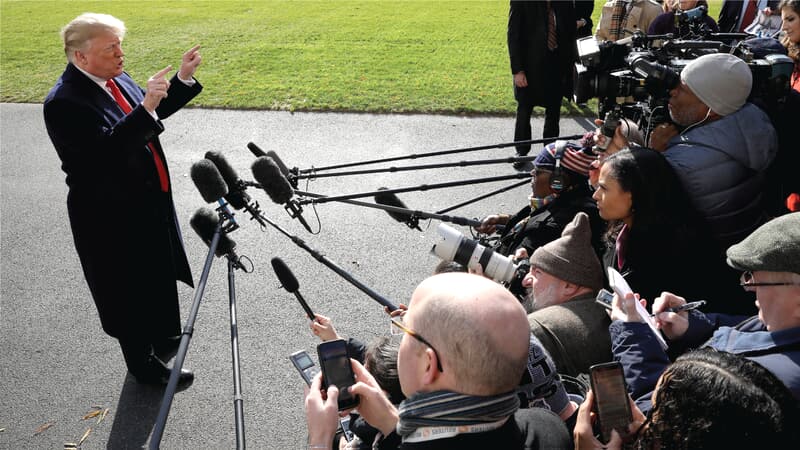
The story raises an interesting idea: would more people—especially those with real talent—run for office if they didn’t feel like their personal lives were always under a microscope?
Maybe the country would have more bold leaders like John F. Kennedy and fewer perfectly polished candidates worried about image more than impact.
But There’s a Catch

On the flip side, when there’s too much secrecy, it can open the door to mistrust. In France, the lack of transparency has, at times, helped fuel anti-elite sentiment. Without public accountability, some leaders may cross ethical lines without anyone noticing.
That’s why the balance matters.
So What’s the Right Approach?

Maybe it’s not about being more like France—or even staying exactly as we are. Perhaps the best path forward is somewhere in the middle: respecting privacy, but not ignoring integrity. Caring about leadership, but not demanding perfection.
At the very least, it’s worth asking: Could politics be a little less punishing—and a little more human?
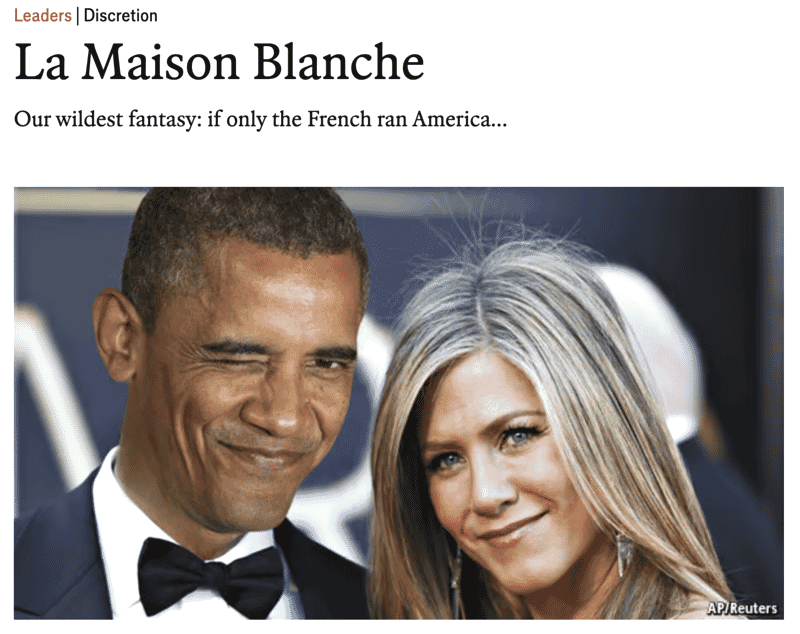 Read the full article here: La Maison Blanche on The Economist
Read the full article here: La Maison Blanche on The Economist

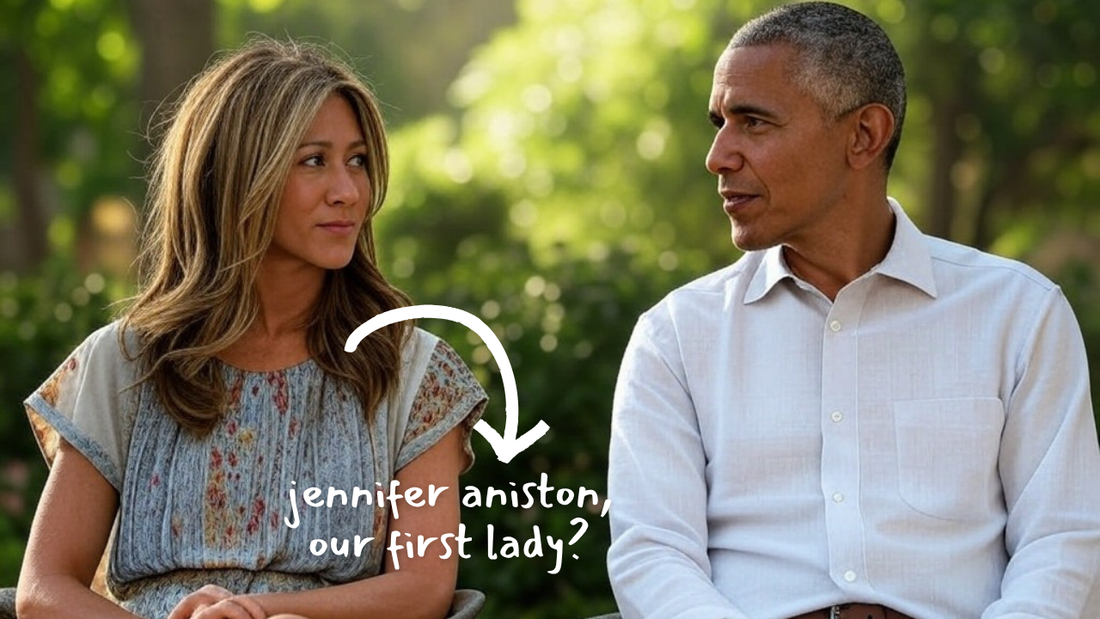
 Share on Facebook
Share on Facebook

